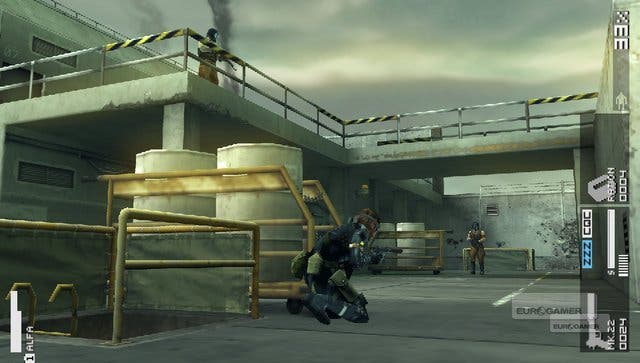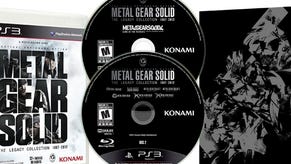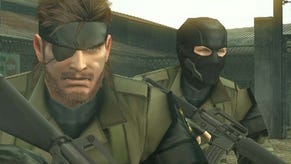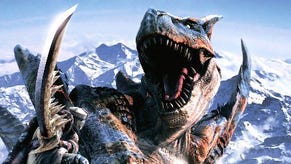Metal Gear Solid: Peace Walker
Walking the line.
Naturally, nothing is as it seems, and Snake uncovers a spook plot to construct nuke-launching mechs that are supposed to create the ultimate deterrent across Central America, but will probably spark another Cuban missile crisis. Falling in with some improbably cute Sandinistas, Snake establishes and grows the MSF at an offshore compound - Mother Base, the beginnings of Outer Heaven - while, rather confusingly, beginning building his own Metal Gear mech, a deterrent to a deterrent. Just don't think about it too hard.
It's actually one of the more grounded and low-key Metal Gear plots (not saying much, I know), and it takes a while to get going. It makes sense both in isolation and in the context of the series' timeline, and thankfully doesn't get too bogged down in the interminable exposition and hapless continuity entanglements that blighted Guns of the Patriots.
But it's also lacking in pizazz, and there's something slightly rote and methodical this time in Snake's disentanglement of yet another military-industrial, conspiratorial super-weapon programme. The setting, though atmospheric, seems samey after MGS4's globe-spanning strides, and the boss fights are probably the least dramatic and most tiresome in the series' otherwise illustrious history.

The delivery is superb, though; even cut-scene haters would have to admire the stylish, animated-graphic-novel style of Peace Walker's substantial but not overlong story interludes. Illustrated with restless, dynamic splashes of ink by Ashley Wood - who also did Portable Ops and the MGS Digital Graphic Novels - and simply but well voiced, they have some neat interactive features and a relatively punchy pace. David Hayter turns in an almost parodic croak of a performance as Naked Snake, but unearths a sweet tenderness in him, too.
In between the dialogue, you'll find yourself engaged in a taut action game that, despite an overflowing cornucopia of tactical options both serious and silly, remains a hardcore stealth game at heart, and is best played that way. No surprises there, then. But Peace Walker does improve on one of the Metal Gear series' long-standing weaknesses - positive reinforcement of stealth play.
It's always been too hard to play Metal Gear well and too easy to play it badly. But Peace Walker shifts that balance in the right direction and also gives you meaningful rewards, beyond tension and enjoyment, for following the stealthy and non-lethal route. The more tidily you finish a stage - with fewer alerts and kills, in shorter time - the more Heroism points you're awarded at the end, and these increase the rate of unlocks across the game's huge spread of items, features and bonus missions.

Also, non-lethal and surreptitious takedowns allow you to scoop the sleeping enemy out of the field of battle with your Fulton Recovery System - a comical balloon that whisks him up to your waiting MSF helicopter. That means his body's not there to be discovered, and it gives you a new recruit for your MSF ranks to boot. Prisoners can also be rescued in this way. It's very satisfying.
The campaign is broken into fairly short stages - Main Ops missions - and these are further broken up into very small maps so as to accommodate the gritty texture and attention to detail that you expect of Metal Gear on the PSP. No real complaints there, but the absence of any checkpoints at all within each mission is baffling and infuriating. Many stages are easily long enough and hard enough for you to die a few times - or want to restart if you're aiming for a good rating and slick play - and despite being designed with obvious care, they still have an element of trial-and-error that's endemic to stealth gaming. But you have to start from scratch each time.
It's true that there's an admirable purity and methodical toughness to this, something Demon's Souls has proved that many of us still want from our videogames. But stripped of that game's epic dimension, in Peace Walker's case it errs on the side of frustration and repetition, and it's also notably unsuitable for handheld play. Once you know the game well, however, replaying stages to optimise your performance and reap more recruits and points should be a pleasure.








